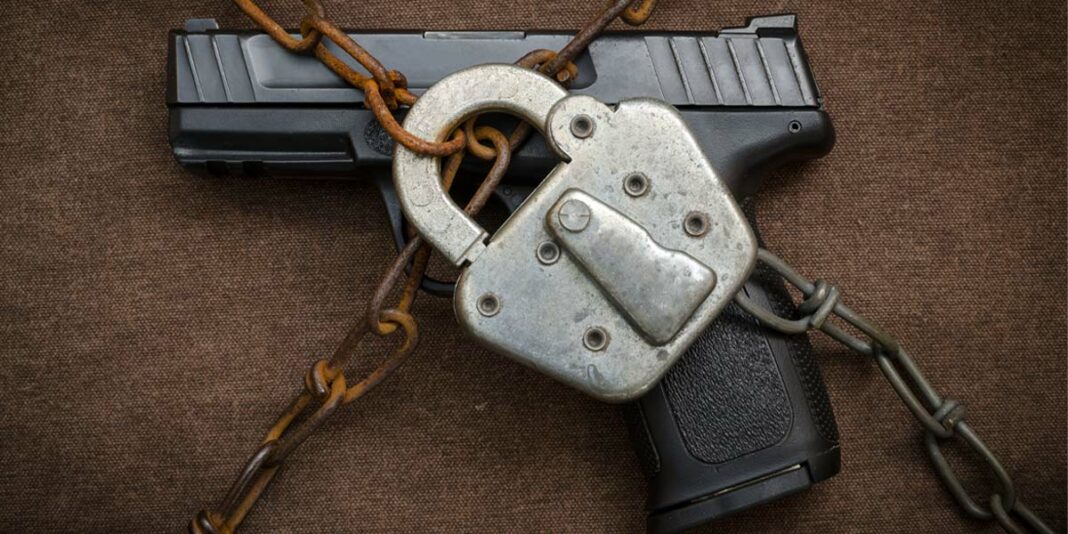OTTAWA—Local and provincial representatives who represent firearms owners are not at all surprised that the federal government has extended the amnesty order on firearms it had prohibited after the deadly 2020 Nova Scotia shooting rampage. The amnesty has been extended an extra two years, until October 2025.
“Ultimately, the extension was inevitable,” stated Mark Ryckman, manager of policy of the Ontario Federation of Anglers and Hunters (OFAH). “There is no way the government could implement the buyback prior to the end of the current or previous amnesty order.”
“It is good news it will not leave the government in a legal bind,” said Mr. Ryckman.
Bill Elliott, a member of the Manitoulin Small Handgun Association told the Expositor, “I have to admit I haven’t been following the issue too closely, but I know the cost projections for the buyback are astronomical.”
Public Safety Canada updated its website about the yet-to-be developed firearms buyback program on October 11, saying the amnesty period that was set to expire at the end of the month will remain in place until October 30, 2025.
The amnesty applies to those who own one of the more than 1,500 models of guns that the federal government announced it was banning, saying assault-style firearms, such as the AR-15, have no place in communities, according to National Newswatch.
Prime Minister Justin Trudeau had originally announced the ban in May 2020, after a gunman in Nova Scotia committed the deadliest mass shooting in modern Canadian history. At the time the Liberals promised to compensate those who own such weapons through a buyback program, which the parliamentary budget officer said in 2021 indicated would cost over $750 million.
In April, former public safety minister Marco Mendicino announced his department had started to work on the first phase of that program, starting with sorting out how to compensate retailers.
Jeff Helsdon of OFAH wrote in Ontario Out of Doors magazine the amnesty order to prevent owners of prohibited firearms from criminal liability applies to firearms that became prohibited through the federal governments May 1, 2020 order-in-council prohibition of what it calls assault weapons. The majority of the firearms affected are semi-automatic centrefire guns, such as the AR-15. The initial order covered about 1,500 firearms models and variants. Another 500 have been added since.
“The extension of the order will ensure affected firearm owners and businesses continue to be protected from criminal liability for unlawful possession while they come into compliance with the law, including having the opportunity to take part in the buyback program,” according to the Public Safety Canada website.
“Given the sheer number of firearms that would be eligible for compensation, I expect the program to include multiple avenues for turning in firearms, including via police detachments and firearm businesses,” said Mr. Ryckman. “However, these details have yet to be confirmed and are simply speculation at this point.”
“The lack of progress to implement the buyback program, three-and-a half years after the initial prohibitions were announced, is extremely disconcerting,” PolySeSouvient, a prominent gun-control advocacy group said in a statement to National Newswatch.
It said the amnesty extension, “is a testament to the government’s overall mishandling of the assault weapon file,” including Bill C-21.
That legislation, which the Senate is still considering, was criticized by many firearms owners, the Assembly of First Nations and the federal Conservatives for trying to ban rifles commonly used by hunters.
The Canadian Doctors for Protection from Guns, another gun-control advocacy group, said in a statement on Wednesday that it was disappointed in the absence of a clear plan for the buyback to accompany the extension of the amnesty.
“It will be interesting to find out what the (government) accomplish with the amnesty,” said Mr. Ryckman. “Buying back from businesses the government will know how many and where the guns are and what businesses for instance have in their inventory. It will be easier than from individuals, the government has no idea what exists.”
Mr. Ryckman pointed out, “the government hasn’t extended the amnesty yet. It is going through the legislative process, so it will be. In their mind extending the amnesty gives them some breathing room, to find out how they are going to deal with these guns.”





